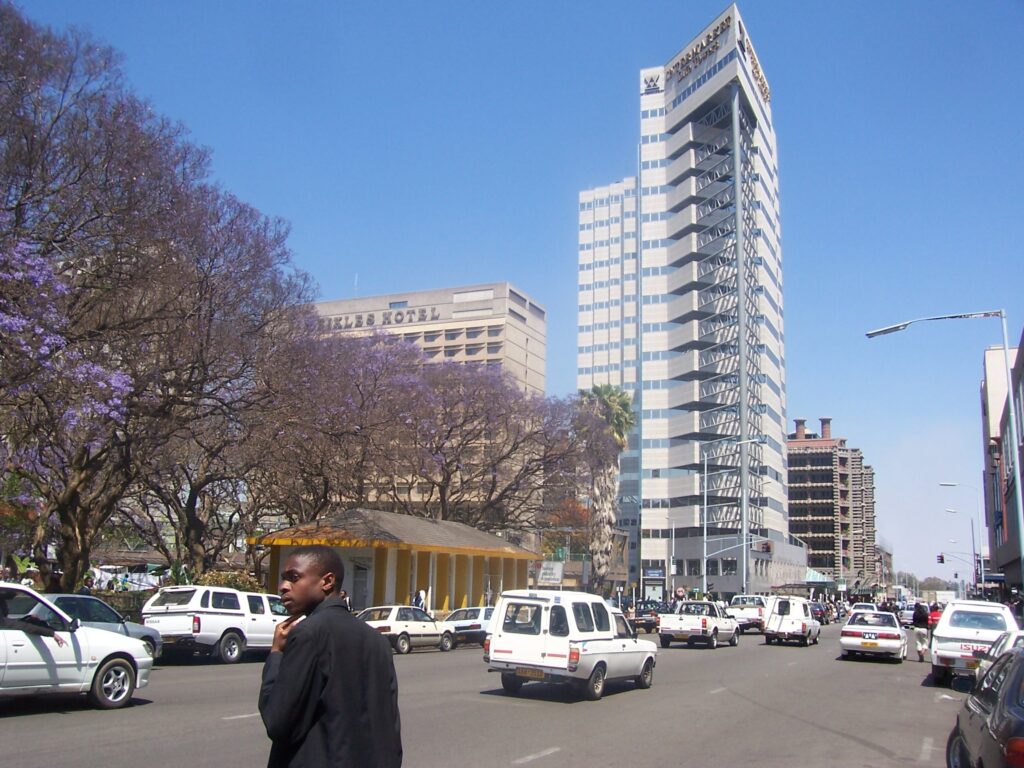Zimbabwe, a landlocked country in Southern Africa, has a rich history and a diverse cultural heritage.
However, its economy has been marred by numerous challenges over the years, including hyperinflation, political instability, and economic mismanagement. In this article, we will delve into the past struggles faced by the Zimbabwean economy and explore the potential opportunities and prospects for its future.
Zimbabwe, formerly known as Rhodesia, gained independence from British colonial rule in 1980. During the early years of independence, the country experienced relatively stable economic growth, driven by agricultural exports, particularly tobacco and mining resources, such as gold and diamonds. The government invested in education and infrastructure, which contributed to an increase in living standards and human development indices.
However, the late 1990s saw a downturn in the economy due to several factors, including land reforms, corruption, and the costly involvement in the Democratic Republic of the Congo’s conflict. The controversial land reforms led to the forced seizure of commercial farmlands, predominantly owned by white farmers, and their redistribution to landless black Zimbabweans. This move severely disrupted agricultural production, leading to food shortages and a decline in exports.
One of the most notorious periods in Zimbabwe’s economic history occurred during the early 2000s when hyperinflation spiraled out of control. By November 2008, the inflation rate had reached a staggering 79.6 billion percent, leading to the country abandoning its currency and adopting multiple foreign currencies, primarily the US dollar, in 2009. This move stabilized the economy to some extent, but it also brought its own set of challenges, including a lack of monetary policy control.
The country’s political environment has also been a significant factor in shaping its economic trajectory. President Robert Mugabe’s rule, which lasted from independence until 2017, was marked by autocratic governance, political repression, and alleged human rights abuses. International sanctions and strained foreign relations further complicated Zimbabwe’s economic situation, limiting foreign investments and access to global markets.
In recent years, Zimbabwe has made efforts to stabilize its economy and foster economic growth under President Emmerson Mnangagwa’s leadership, who succeeded Robert Mugabe in 2017. The government has taken steps to re-engage with the international community, ease business regulations, and encourage foreign investment.
Zimbabwe possesses abundant natural resources and fertile land, which, if harnessed effectively, could play a pivotal role in revitalizing the economy. Agriculture remains a crucial sector, and efforts to modernize and support small-scale farmers could lead to increased production and export opportunities.
The country is also rich in mineral resources, including gold, platinum, and diamonds. Responsible mining practices and fair distribution of revenues from mining activities could contribute significantly to the national economy.
Zimbabwe’s diverse wildlife and natural beauty present opportunities for tourism development. By investing in infrastructure, promoting ecotourism, and ensuring environmental conservation, the tourism sector could attract foreign visitors and boost economic growth.
Despite the potential for growth, Zimbabwe still faces significant challenges on its path to economic recovery. These challenges include the need for continued political stability and a commitment to democratic governance, as these factors are crucial to attract foreign investors and rebuild international trust in the country’s economic prospects. Another major obstacle is Zimbabwe’s high external debt, which limits its access to international financing and highlights the importance of responsible debt management for achieving sustainable economic growth. Additionally, rampant corruption remains a persistent issue, discouraging investment and undermining overall economic progress. To overcome these hurdles, Zimbabwe must prioritize tackling corruption and implementing transparent policies. Furthermore, substantial investments in infrastructure are essential to enhance transportation, energy, and communication networks, facilitating business activities and supporting the nation’s economic revitalization efforts. By addressing these challenges proactively, Zimbabwe can foster a more conducive environment for economic recovery and long-term development.
Although the economy of Zimbabwe has experienced turbulent times, it also holds immense potential for growth and development. With stable political leadership, effective economic policies, and responsible governance, Zimbabwe can overcome its challenges and work towards a prosperous future. Investments in agriculture, mining, and tourism, combined with efforts to address systemic issues, will be critical in transforming the country’s economy and improving the lives of its citizens.
Source: Marcopolis


